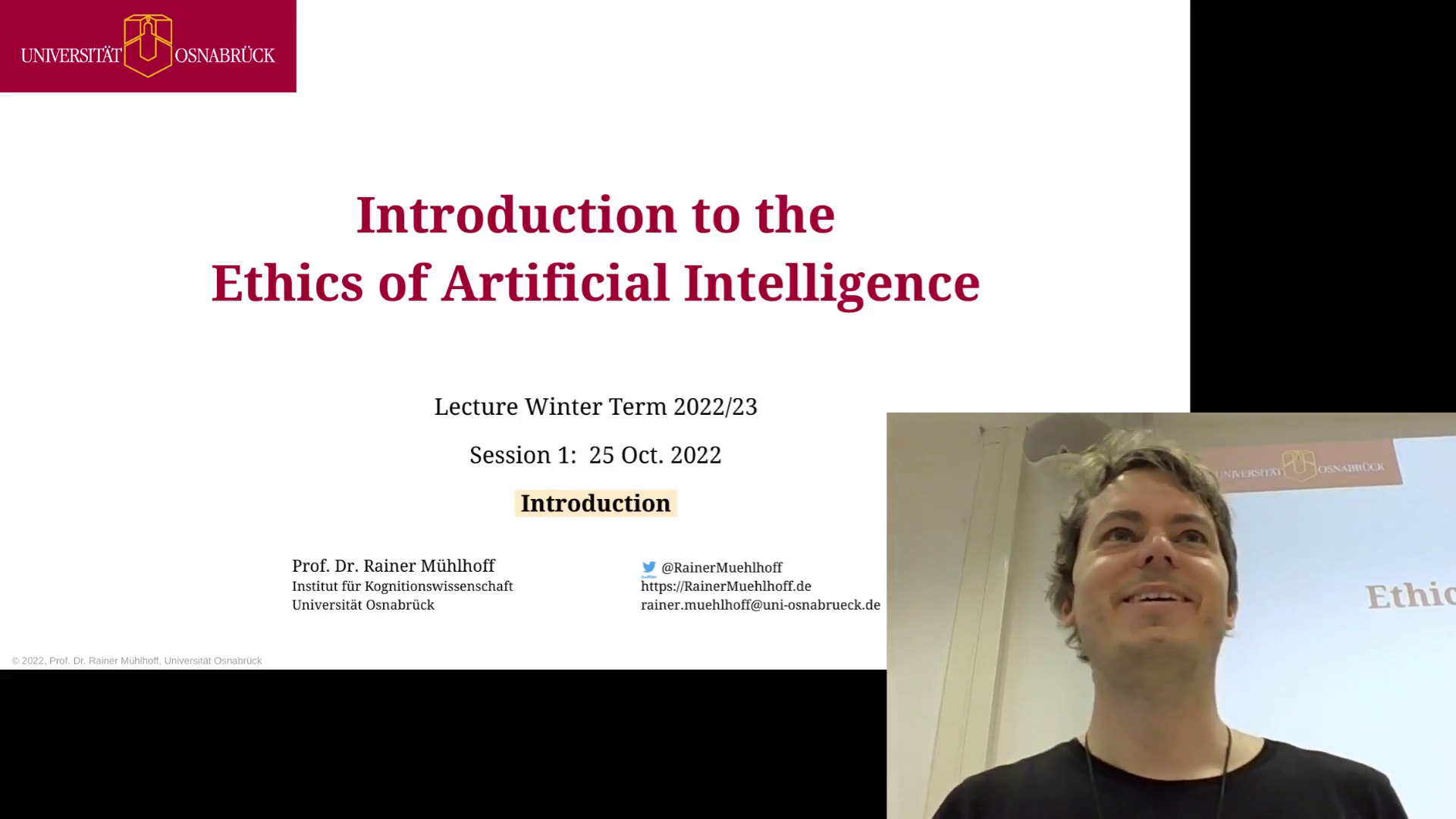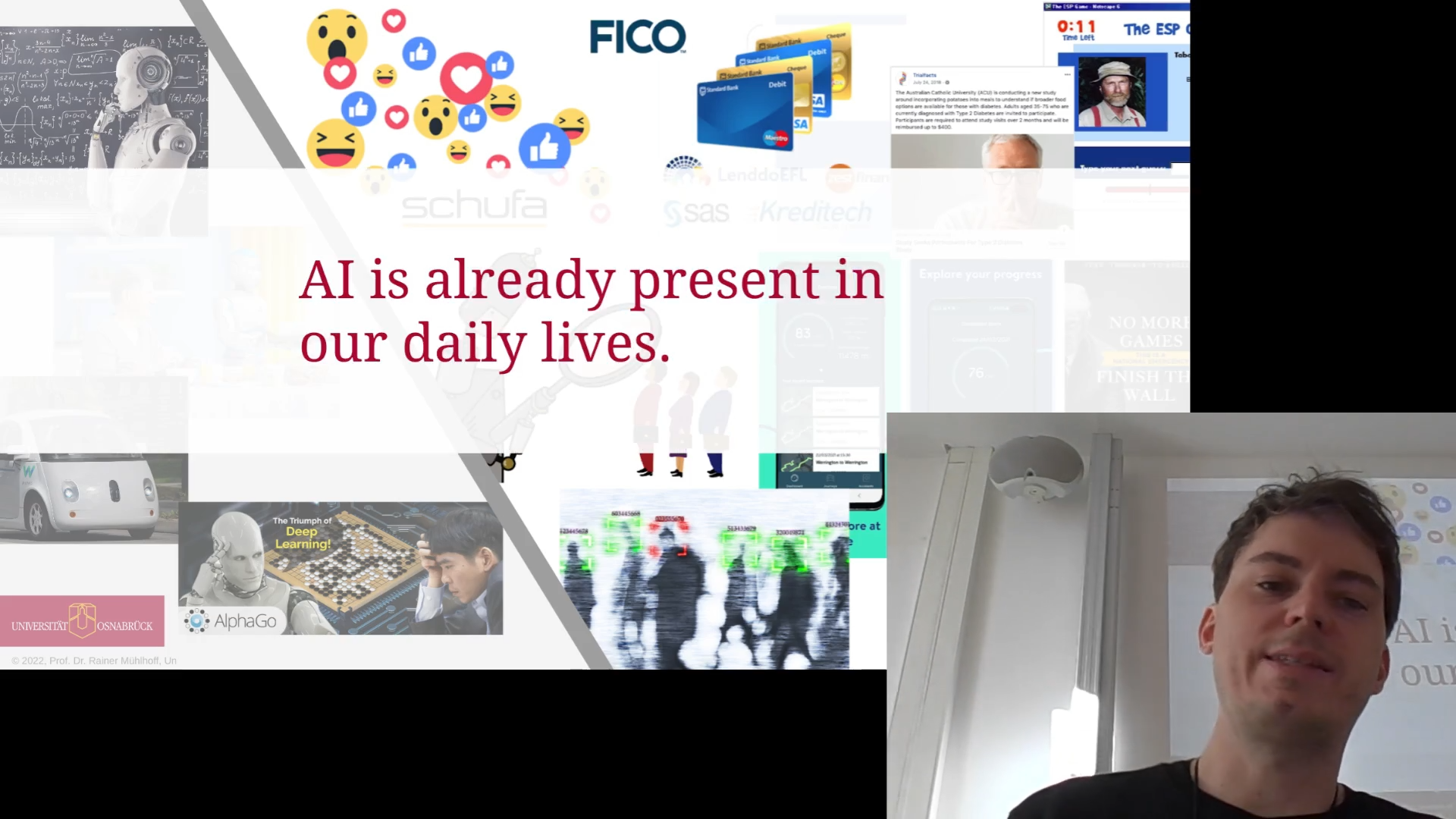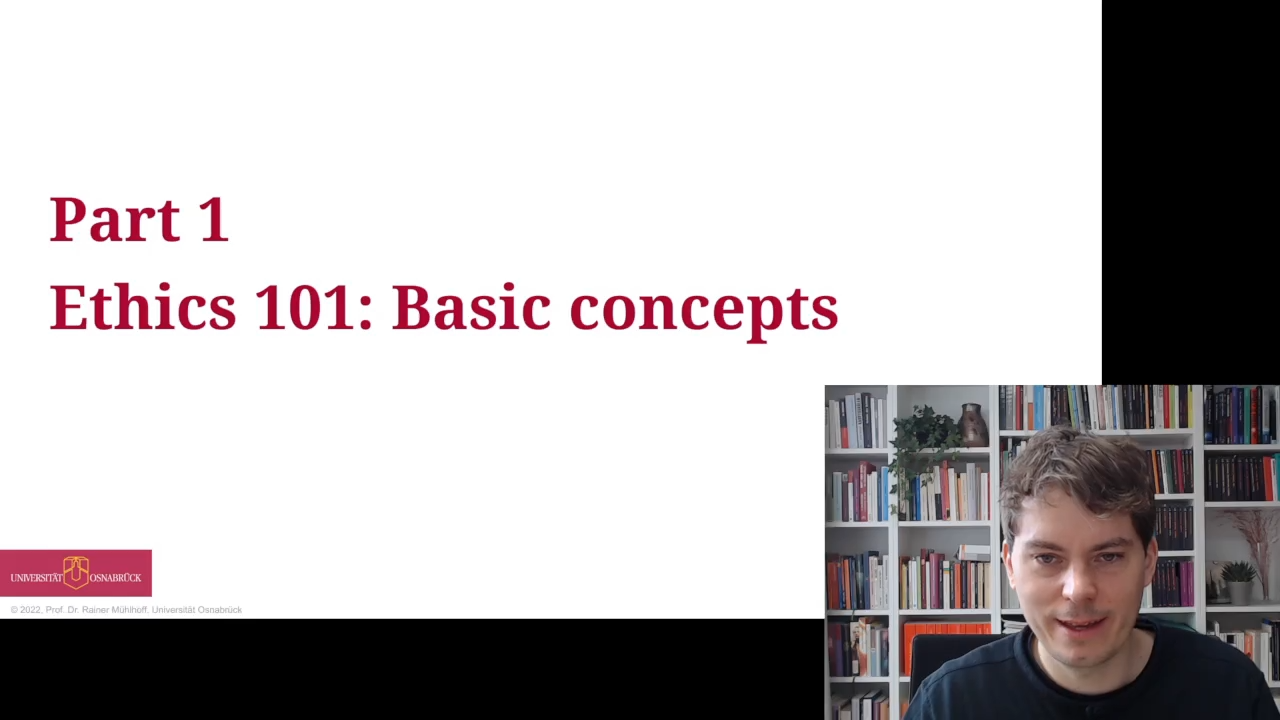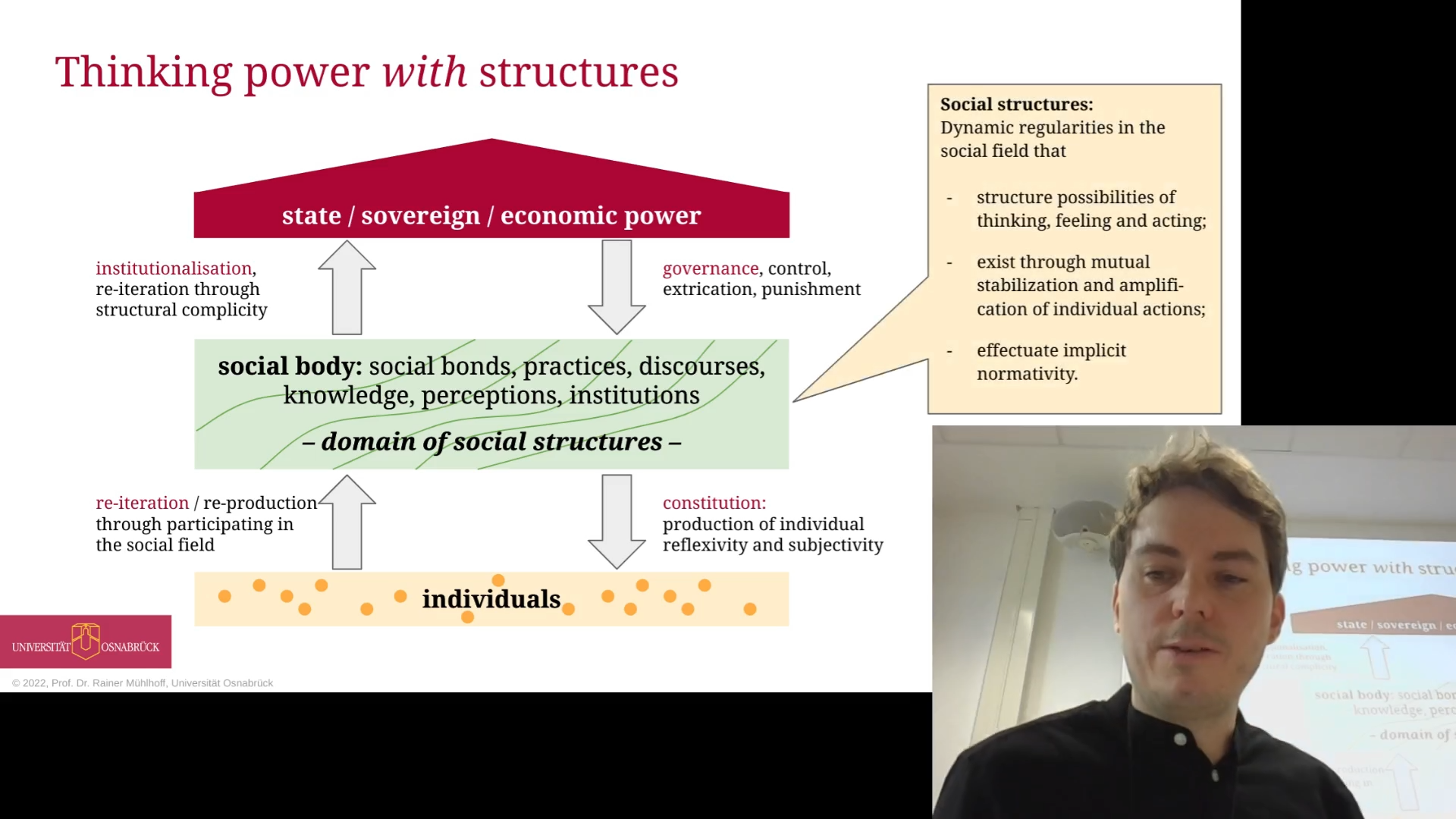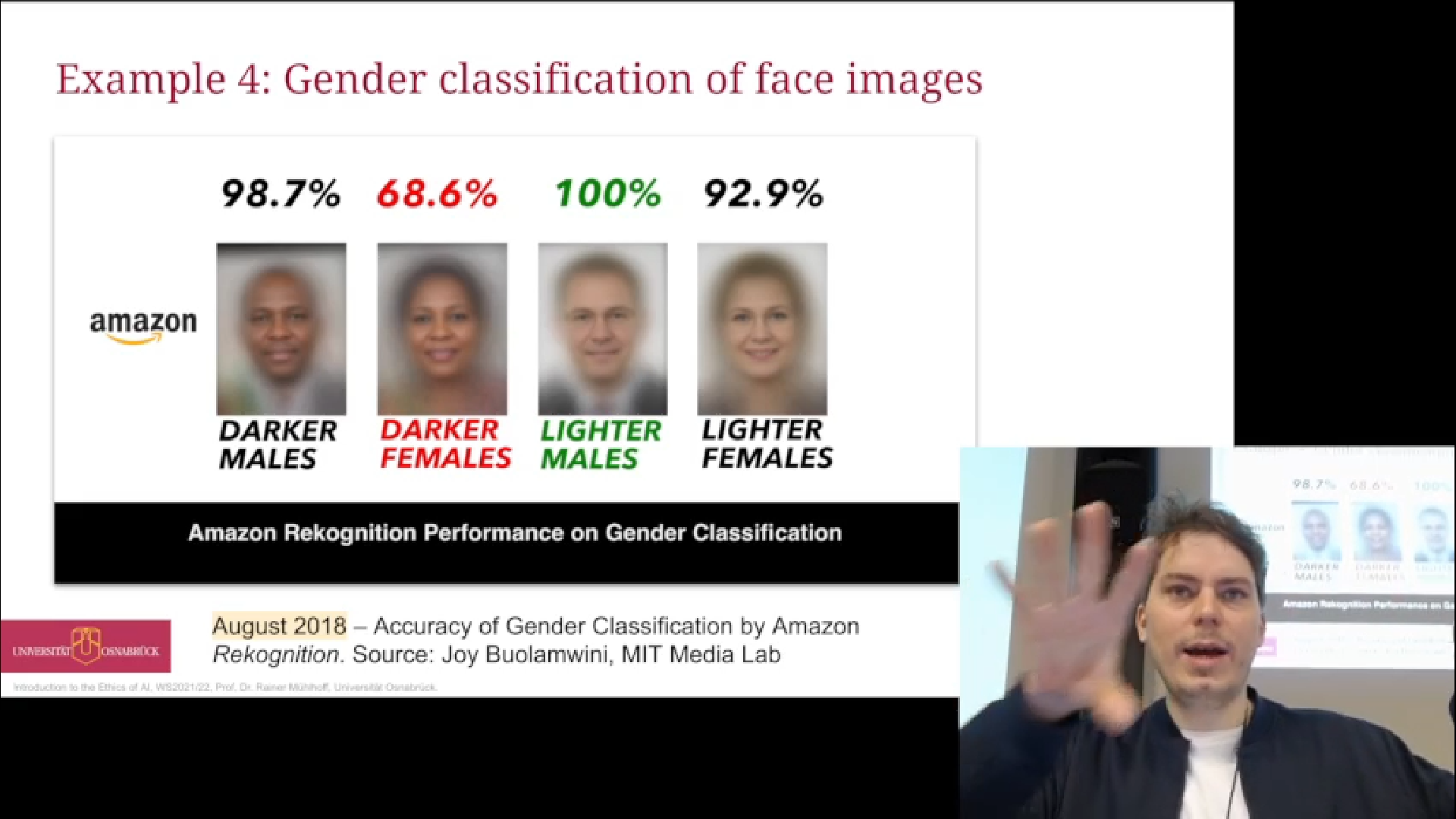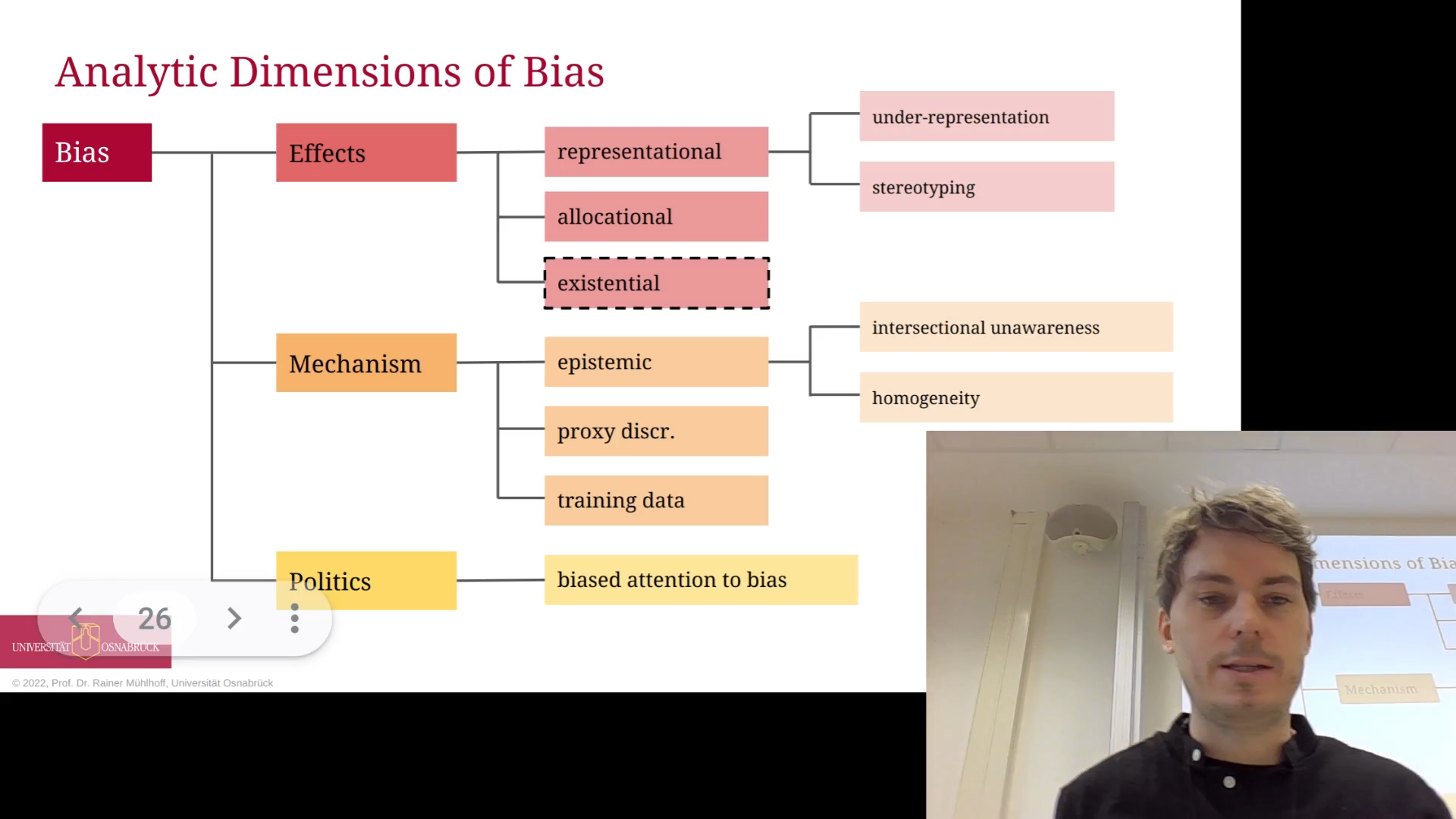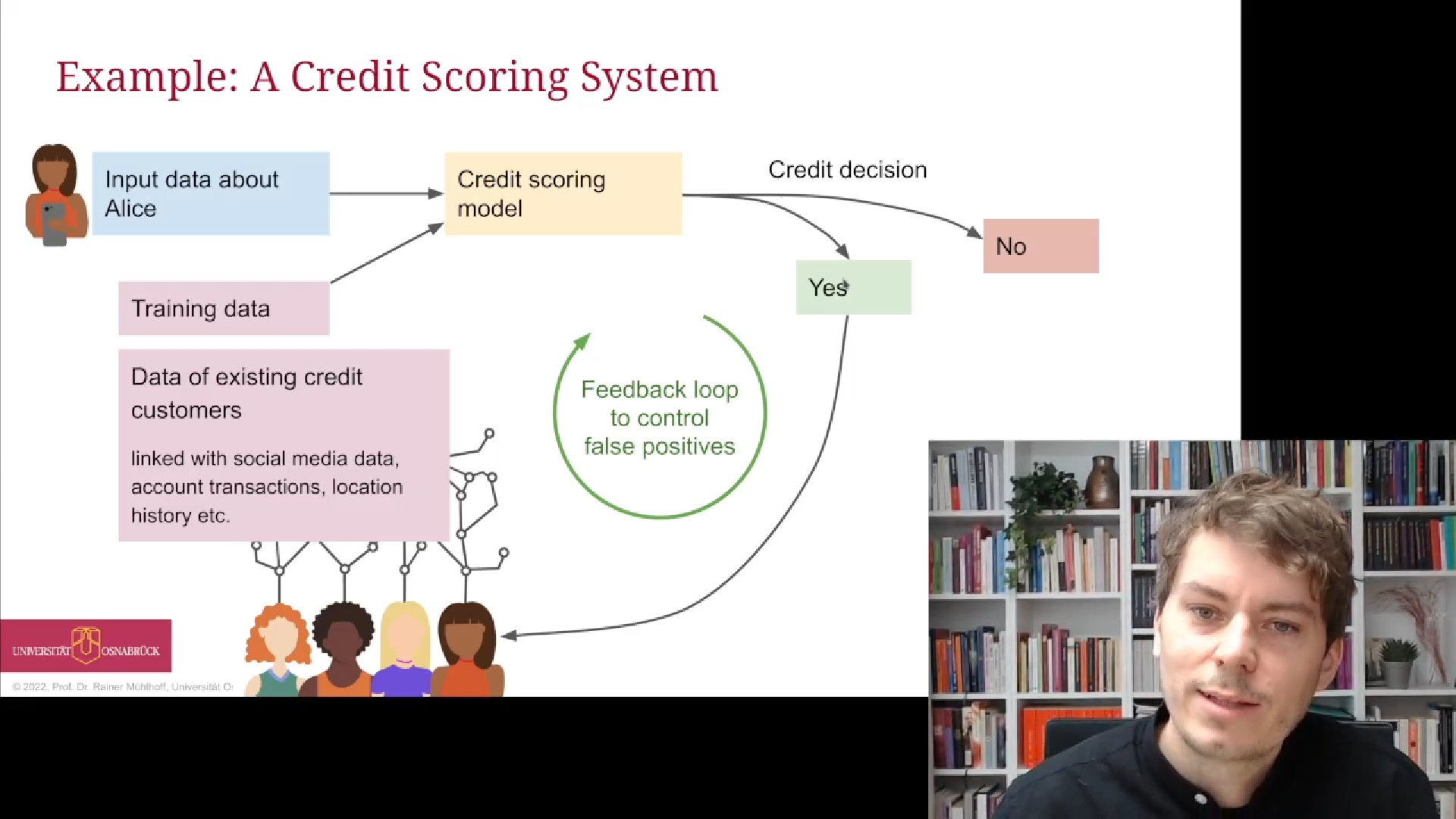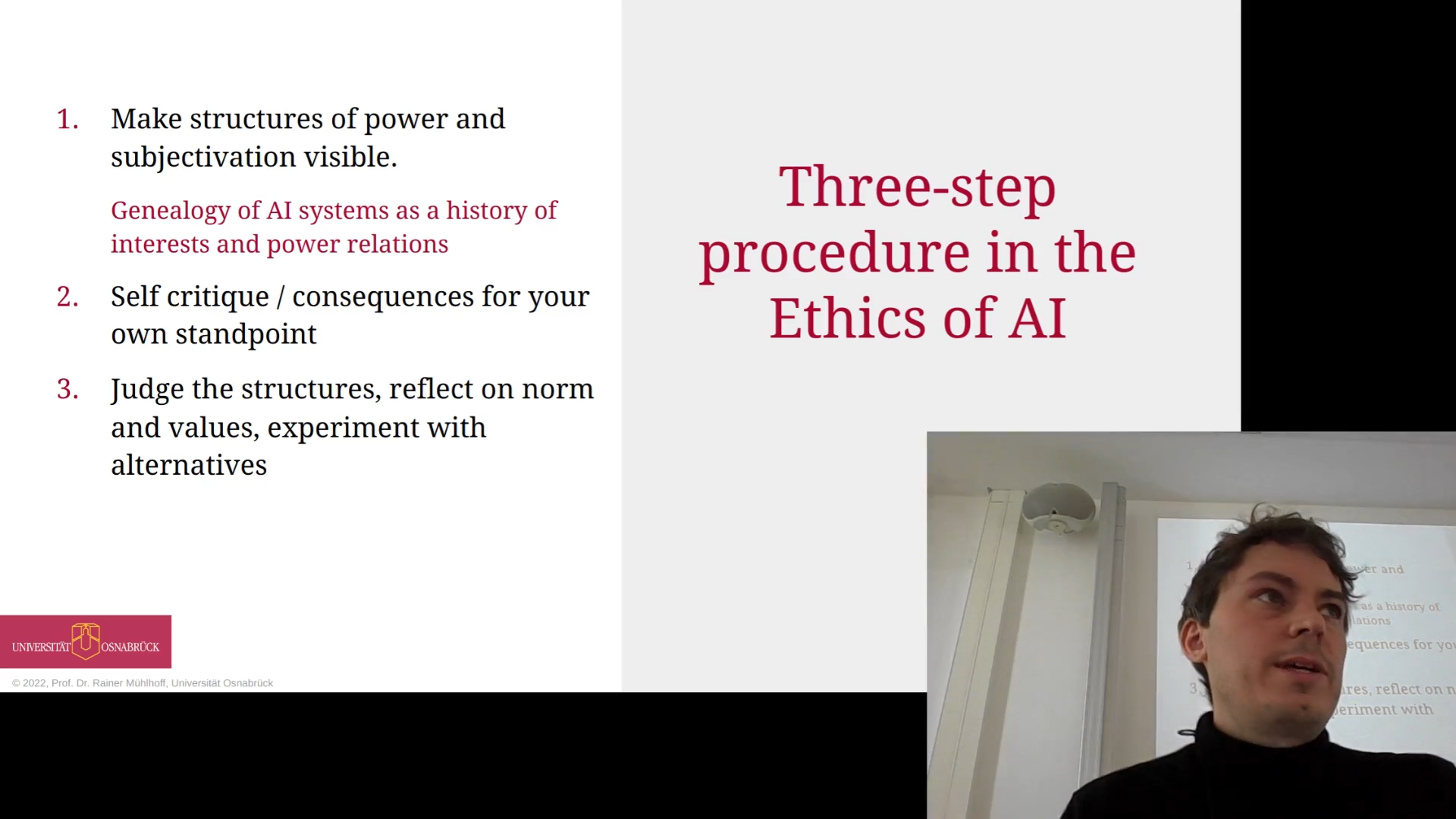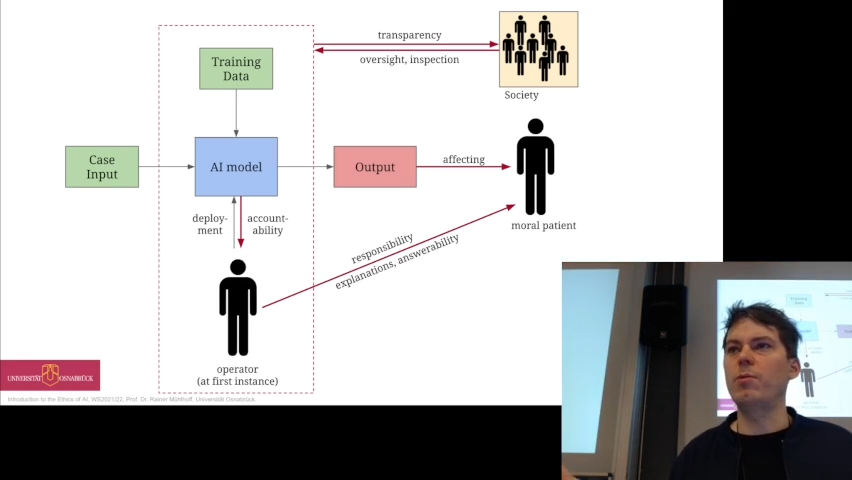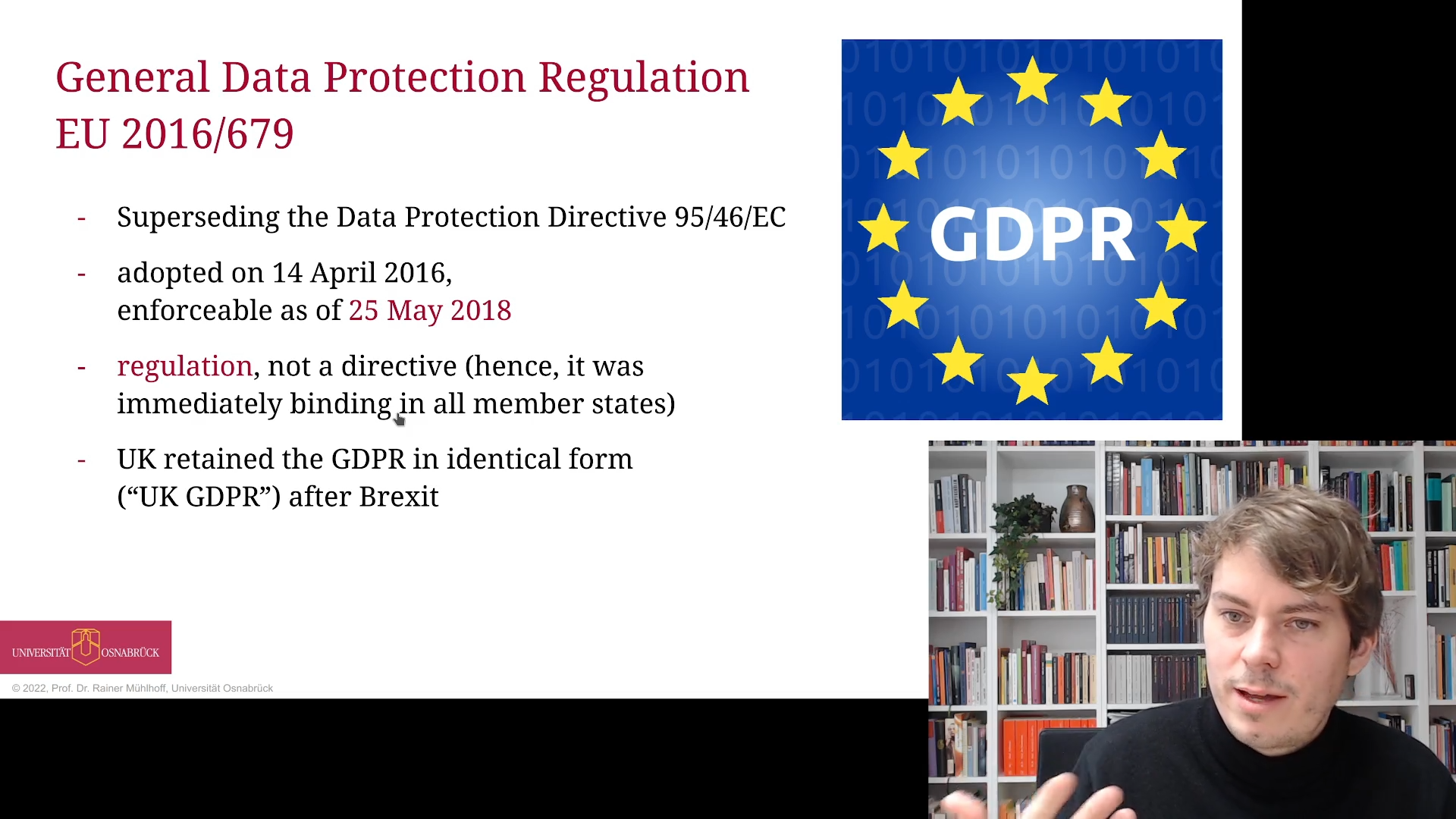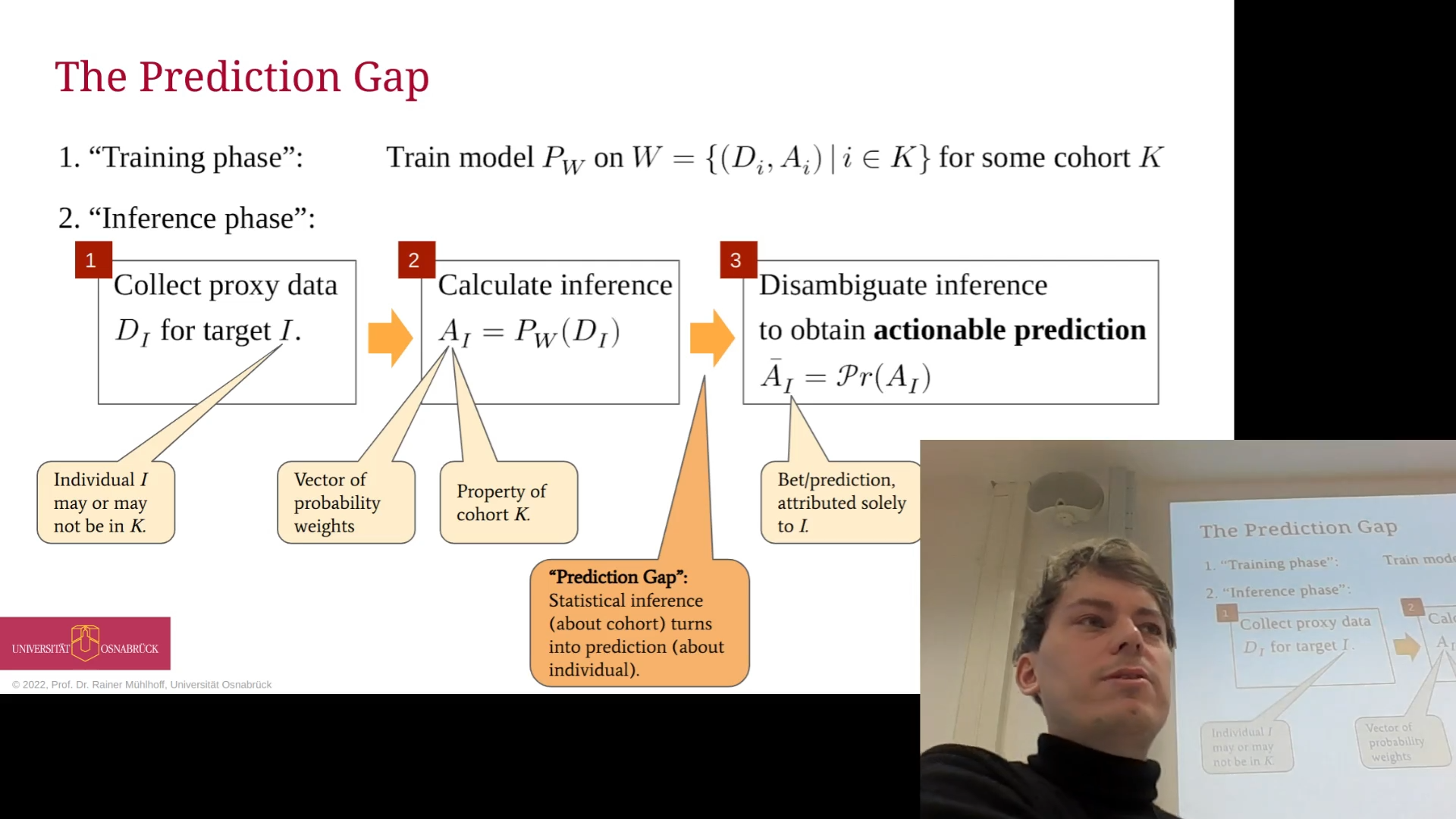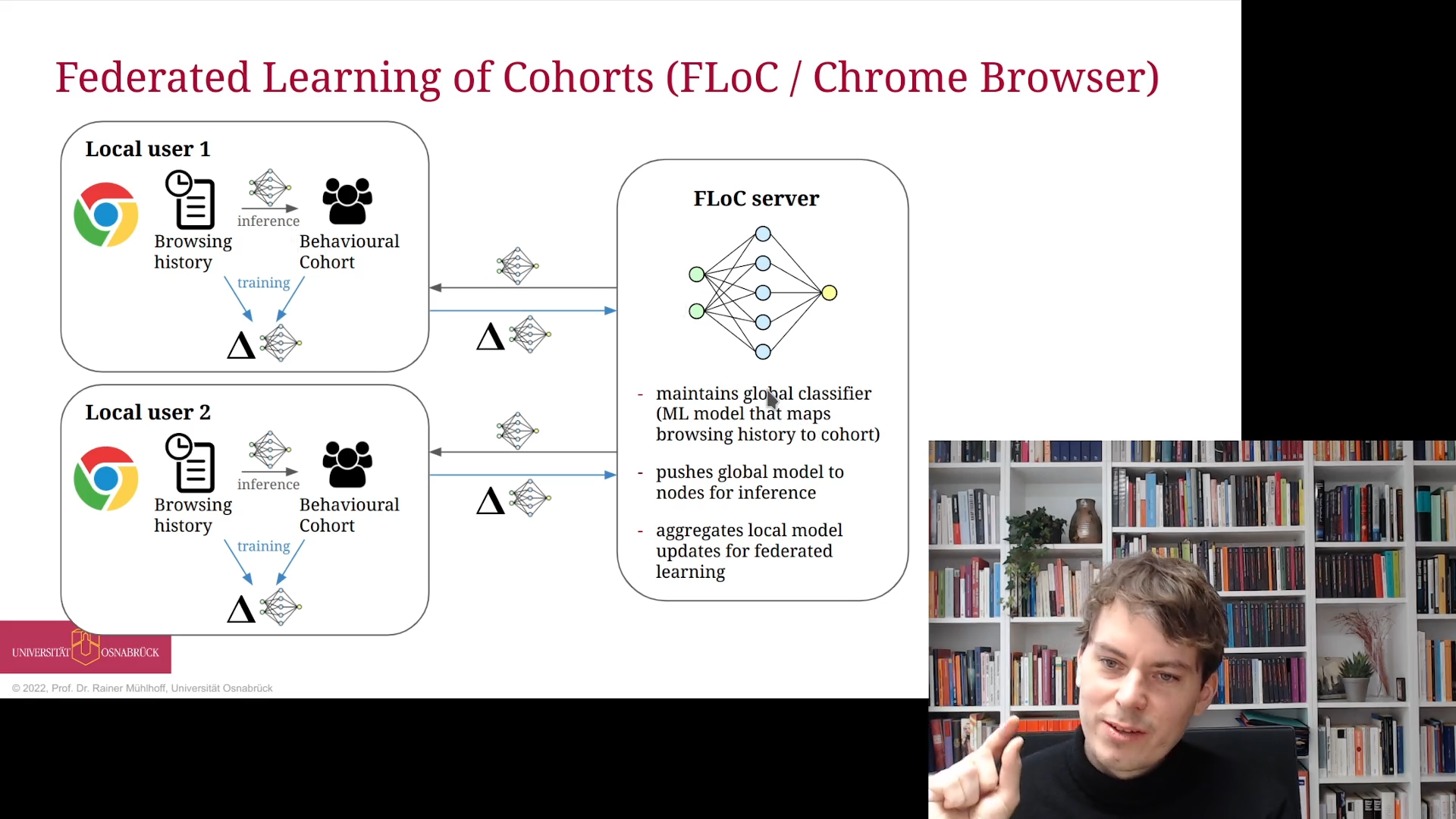Introduction to the Ethics of AI 2022/23
University of Osnabrück, Winter Term 2022/23, Prof. Dr. Rainer Mühlhoff
This is an archive version of an older lecture. Looking for the current lecture?
Go to the ongoing version of this lecture (Summer Term 2024)
Recorded Sessions
To watch the videos, you will be asked for a login:
username = lecture
the password is et.hi.cs.ofai without the dots.
username = lecture
the password is et.hi.cs.ofai without the dots.
General course description and information
Access
The lecture is public and can be accessed in three formats:
- On site: Tuesdays 10–12, starting 25 October, room 11/212.
- Live stream on Big Blue Button: Tuesdays 10–12 [Link]
- Asynchronous participation via video recordings, see below. Recordings will be made available on Wednesdays every week.
Description
The lecture is an ideal starting point to get an orientation in the field and to possibly start engaging with more specialized courses and/or research projects in the context of the Ethics of AI group at the UOS. The lecture will provide an overview of problems, philosophical theories and methods that comprise the field of Ethics of AI. This includes both the philosophical foundations of ethics and critical theory as well as different technological phenomena and legal aspects of AI. A particular focus will be on contemporary data-driven and machine learning-based AI technology and its applications in digital consumer media. As we will see, questions of social equality and fairness are central to today’s ethical concerns about AI, so that ethics needs to adopt a societal perspective, analysing constellations of power, discrimination and subordination that relate to AI technology. We will also touch on relevant legal debates such as privacy and data protection legislation.
Program
| Session | Date | Lecture Topic | Discussion Groups |
|---|---|---|---|
| 1 | 25.10. | Introduction | [no discussion groups] Coeckelbergh, Mark. 2020. AI Ethics. Cambridge, MA: The MIT Press. Chapters 1–2. |
| 2 | 01.11. | What is AI today? / Human-Aided AI | Videos: 1) “Human Computation”, Google Tech Talk by Luis von Ahn, 2006. YouTube 2) “Artificial Intelligence is the New Electricity”, Stanford Talk by Andrew Ng, 2017. YouTube |
| 3* | 08.11. | Ethics 101 | Dignum, Reponsible AI, Chapter 3. |
| 4 | 15.11. | Power I | Sattarov, Faridun. 2019. Power and Technology: A Philosophical and Ethical Analysis. Lanham: Rowman & Littlefield. |
| 5* | 22.11. | Bias & Discrimination I | Texts on Subjectivity |
| 6 | 29.11. | Bias & Discrimination II | Videos: Joy Buolamwini and Kimberle Crenshaw |
| 7* | 06.12. | Power II | Friedman, Batya, and Helen Nissenbaum. 1996. “Bias in computer systems.” ACM Transactions on Information Systems 14(3). |
| 8 | 13.12. | Midterm Q&A | Coeckelbergh, Mark. „Artificial intelligence, responsibility attribution, and a relational justification of explainability“. Science and Engineering Ethics 26(4), 2020: 2051–68. |
| 9* | 20.12. | Responsibility & Explainability | [no special content / help on video homeworks] |
| 10 | 10.01. | AI Paternalism | Lacey, Cherie, and Catherine Caudwell. 2019. Cuteness as a Dark Pattern in Home Robots. In 2019 14th ACM/IEEE International Conference on Human-Robot Interaction (HRI), 374 81. IEEE. |
| 11* | 17.01. | Data Protection I | Steeves, Valerie. 2015. Privacy, Sociality and the Failure of Regulation: Lessons Learned from Young Canadians Online Experiences. In Social Dimensions of Privacy: Interdisciplinary Perspectives, edited by Beate Roessler and Dorota Mokrosinska, 244 77. New York: Cambridge University Press. |
| 12 | 24.01. | Data Protection II | Mühlhoff, Rainer. 2021. Predictive Privacy: Towards an Applied Ethics of Data Analytics. Ethics and Information Technology 23: 675 90. https://doi.org/10.1007/s10676-021-09606-x.tba |
| 13* | 31.01. | Data Protection III | no reading / exam preparation |
| 14 | 07.02. | Written exam / Klausur | [no discussion groups] |
* = streaming in BBB + 11/212
Discussion groups
The class is offered as a lecture with discussion groups (Vorlesung mit Übung). To earn ECTS points, students will have to participate in the 2 hr/week lecture and in a 2 hr/week discussion group. You will then get 6 ECTS points.
Please find the list of available discussion groups here.
Video/audio homework
Students who would like to obtain ECTS points for the lecture need to hand in a video or audio podcast once during the semester.
Please find details, advice & FAQ on video/audio homework here.
Exam (Klausur)
Students who would like to obtain ECTS points for the lecture (including Erasmus students) need to pass the final exam.
Date: 7 Feb. 2023, 10:00–12:00 in the lecture hall (11/212).
Closed book exam on paper; mostly multiple choice questions; no electronic devices allowed.

